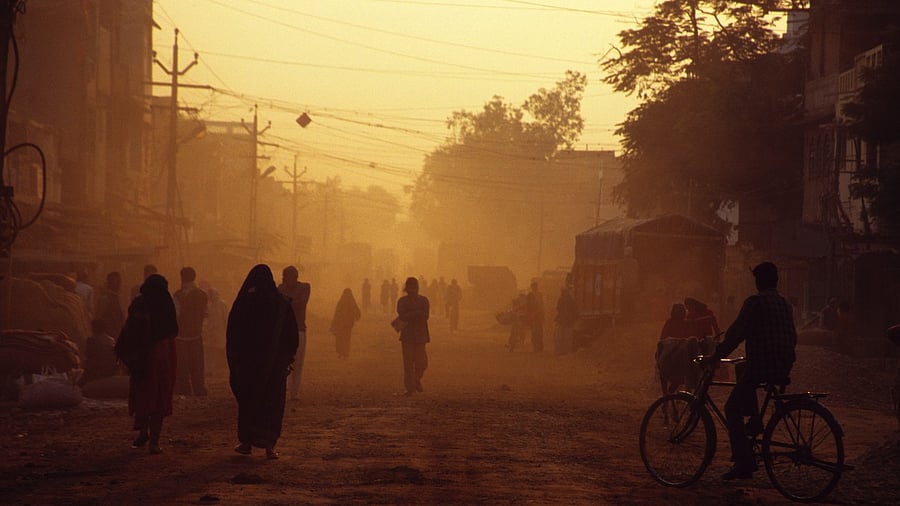
Photo for representational purpose.
Credit: iStock photo
When 26-year-old engineer Kavin Selva Ganesh was murdered in Tirunelveli, Tamil Nadu lost not only a promising life but also the comforting illusion that education and prosperity shield against caste violence.
In English, we sanitise such crimes as “honour killings”—a term that inadvertently romanticises brutality. The Tamil phrase Aanava Kolai (arrogance/ chauvinist murder) captures the reality more accurately: acts born of toxic pride and caste supremacy that bring only dishonour to the perpetrators.
It is especially deplorable in Tamil Nadu—the birthplace of Periyar’s rationalist movement, self-respect marriages, and anti-caste politics. The state once stood out for denouncing caste-based surnames as symbols of privilege and contempt.
The present government has carried that legacy forward through symbolic measures, such as renaming SC, MBC or BC hostels as “social justice hostels” and dropping the word “colony” from official references to Dalit settlements.
However, progressive ideals are repeatedly undone by fanatical narratives of caste pride from opposing camps. These chauvinist murders expose the limits of symbolic gestures; they cannot by themselves transform deeply entrenched social attitudes that sustain violence.
Kavin was educated, financially independent, and far from disadvantaged. His death shatters the convenient belief—common across India—that economic mobility can erase caste discrimination. Caste supremacy is unmoved by degrees or financial stability.
In Mari Selvaraj’s film, Pariyerum Perumal, the dominant-caste antagonist advises the Dalit protagonist: “Study well, come up in life; things might change.” The ending offers a glimmer of hope. Yet Kavin’s murder, in the same region where the film is set, is a brutal reminder that economic progress alone cannot dismantle caste barriers when hatred runs deep. Such killings are often driven by dominant castes claiming to guard “pure bloodlines” and styling themselves aanda parambaraigal (royal lineage) propped up by clan myths.
Since the late 1970s, neo-nativity films—so named by film critic Sundar Kali—have romanticised this worldview, portraying dominant-caste landlords as heroic while reducing others to grateful subordinates. This has normalised gethu (swag)—a toxic masculinity fused with caste pride—among the dominant-caste youth, indoctrinating them to see proximity to “lesser” castes as a threat to their lineage.
The glorification transcends fiction; it showcases a worrisome trend. When Gokulraj’s killer, Yuvraj, was granted parole, fringe groups welcomed him as a hero. Supporters of Kavin’s alleged killer, Surjith, insist that “well-brought-up boys marry within caste” – a distorted moral inversion. Kavin had sought dialogue with his girlfriend’s family; his killers chose bloodshed and are lauded for it.
Social media endorsements of same-caste marriages as a way to prevent such chauvinist murders echo Ambedkar’s concept of graded inequality, where no two castes are equal and there is ascendence of reverence and descendance of contempt in the caste hierarchy.
No caste is inherently “higher”; instead, they were “highered” through power and social construction. The ancient Purananooru cautions: “Needless, then, is this praise of the privileged; more so the insult of the underprivileged.”
A worrying narrative among those who support brutality is that such crimes are not murders but “wars” to defend family honour—twisting the very idea of honour. True honour lies in recognising human worth, not policing women’s choices. Most disturbing is the portrayal of these killers as “sacrificing” themselves for caste purity, feeding young minds the poisonous idea that imaginary bloodlines matter more than human lives. Caste here is less an iron wall than a glass curtain: invisible to some, but piercing those who try to cross it.
The state must go beyond symbolism and legislate in ways that replace caste pride with collective shame. Chauvinist murders belong to a barbaric past of clan rivalry and primitive animal instincts.
With elections looming, the TN government faces a difficult balance—pursuing justice for the oppressed while needing votes from all communities. What is needed is not a hasty reaction but a deliberate transformation of attitudes backed by legal strength and cultural reform. Measures could include district-level protection cells, curricula that expose caste hierarchy as a product of power dynamics, and a commitment to ending the glorification of caste pride in all forms.
(The writer is an assistant professor, Department of English and Cultural Studies, Christ Deemed to be University, Bengaluru)